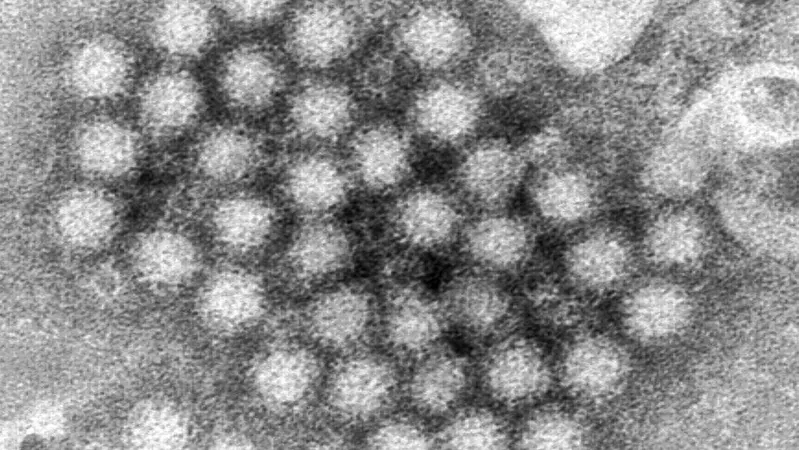
Norovirus Outbreaks Skyrocket in the U.S.: What You Need to Know Now!
2024-12-29
Author: Jacob
This winter, a notorious stomach bug is wreaking havoc across the United States, with alarming new data from the U.S. Centers for Disease Control and Prevention (CDC) detailing a shocking increase in norovirus outbreaks. Recent figures reveal that there were 91 reported outbreaks during the week of December 5, a significant rise from just 69 the previous week. Historical data shows that outbreaks typically do not surpass 65 during this period, raising concerns among health officials.
What You Should Know About Norovirus
What exactly is norovirus?
Norovirus is the leading cause of foodborne illnesses, accounting for a staggering 58% of infections in the U.S. annually. The virus spreads easily; just a mere 10 viral particles can trigger illness in an unsuspecting person. The CDC estimates that each year, approximately 2,500 norovirus outbreaks occur, with a peak season running from November to April.
Symptoms and Severity
Infection symptoms can hit unexpectedly, often manifesting within 12 to 48 hours of exposure. Individuals may experience nausea, abdominal pain, and additional discomfort such as body aches and fever. While most people recover within one to three days, the virus is responsible for around 900 deaths and 109,000 hospitalizations yearly, primarily among the elderly and vulnerable populations. Additionally, there are approximately 465,000 emergency room visits related to norovirus each year, especially among children.
Transmission: How Does It Spread?
Norovirus spreads primarily through contact with infected individuals and environments. Sharing food, utensils, or even surfaces can easily transmit the virus. Contaminated food and water sources also pose significant risks, making vigilance critical, particularly in communal settings.
Who’s Most at Risk?
While anyone can contract norovirus, the most at-risk groups include young children, the elderly, and individuals with compromised immune systems. The primary health threat is dehydration due to vomiting and diarrhea, making awareness and prompt treatment critical.
Prevention: How Can You Stay Safe?
The best defense against this viral menace is thorough and frequent handwashing. Health experts recommend scrubbing hands with soap and warm water for at least 20 seconds—especially before meals. Regularly disinfecting shared surfaces and avoiding food prepared by infected individuals are further essential strategies to curb transmission.
What to Do If You Get Sick
There is no specific medication for norovirus; treatment focuses on rehydration. Drinking clear fluids is vital, while caffeinated beverages and alcohol should be avoided. Seek medical care if you experience severe dehydration symptoms, such as reduced urination or extreme dizziness.
With norovirus cases on the rise, it’s crucial to stay informed and take preventive measures to protect yourself and your loved ones this winter. Don’t let a sudden stomach bug ruin your holiday plans!



 Brasil (PT)
Brasil (PT)
 Canada (EN)
Canada (EN)
 Chile (ES)
Chile (ES)
 Česko (CS)
Česko (CS)
 대한민국 (KO)
대한민국 (KO)
 España (ES)
España (ES)
 France (FR)
France (FR)
 Hong Kong (EN)
Hong Kong (EN)
 Italia (IT)
Italia (IT)
 日本 (JA)
日本 (JA)
 Magyarország (HU)
Magyarország (HU)
 Norge (NO)
Norge (NO)
 Polska (PL)
Polska (PL)
 Schweiz (DE)
Schweiz (DE)
 Singapore (EN)
Singapore (EN)
 Sverige (SV)
Sverige (SV)
 Suomi (FI)
Suomi (FI)
 Türkiye (TR)
Türkiye (TR)
 الإمارات العربية المتحدة (AR)
الإمارات العربية المتحدة (AR)